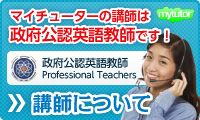
QUESTIONS
Part 1 (Comprehension Questions ):
- What is an extraordinary gift according to the speaker?
- And what does she consider as total freedom?
- At what age does her mother let her go backpacking off to Greece?
- What specific phrase changed the speaker’s life? The day when her whole life started.
- How long did she learn to navigate after hearing that phrase?
- She actually managed to get a ride on a Whitbread Round the World Race boat. But she went as what?
- Was she a good cook?
- Who sponsored Maiden?
- They sailed around the world with what message?
- Maiden is sailing around the world on a five-year world tour for what purpose?

Part 2 (Express Yourself Questions):
- Have you ever been sailing? Where did you sail to?
- Where in the world would you like to go sailing the most?
- Have you ever felt seasick? Where were you?
- How many meters long was the biggest boat you have ever been on?
- When did you last see a sailboat? Where was it?
- If you were to build your own sailboat, what would you name it?
- In many countries sailors don’t know how to swim, what do you think of this?
- Are there any famous sailors or ship captains from your country?
- How does a sailboat move forward against the wind?
- What would you fear most if you went sailing far into the ocean?













